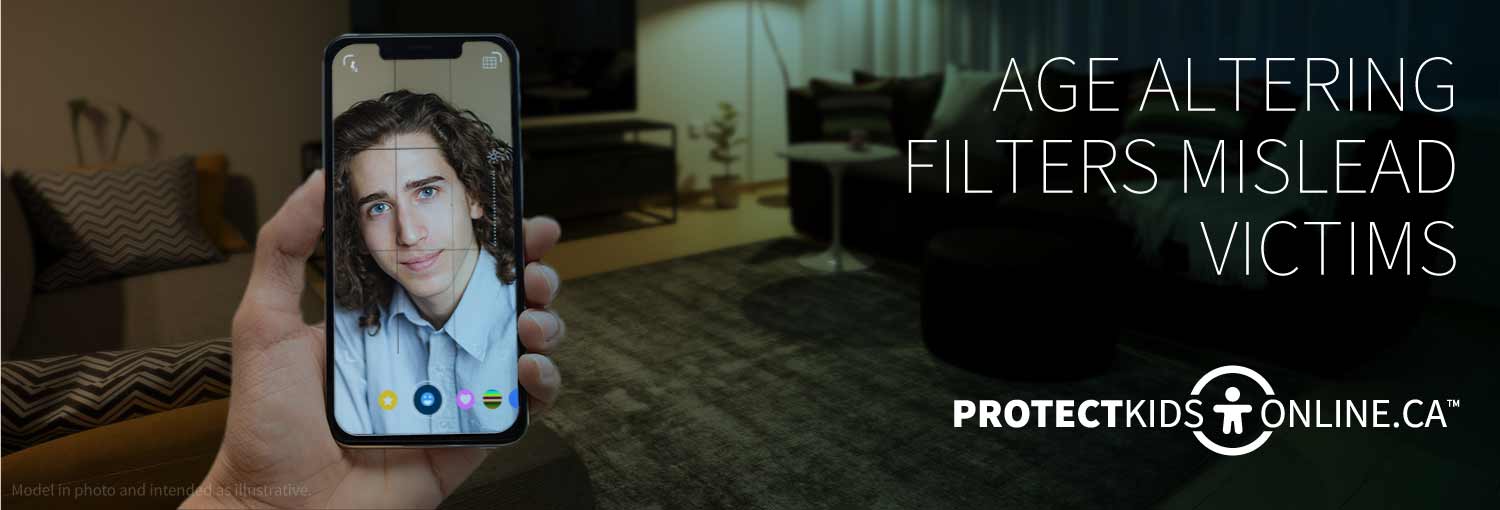Age altering filters mislead victims

Face-altering filters — which are now available on most social media platforms — have become increasingly realistic and hard to spot. Cybertip.ca®, Canada’s tipline for reporting online child sexual abuse and exploitation, warns parents that some offenders are using filters that make them appear younger than they are in real life to help facilitate harm against children online. Luring, sextortion, and unsolicited sexual images or messages are significantly rising. In the last year alone1, Cybertip.ca, which is operated by the Canadian Centre for Child Protection, saw a 36% increase in concerns reported to the tipline of online sexual violence (which includes luring, sextortion, etc.) towards children.
Some offenders send realistic photos or videos of themselves using the age filter, or use face smoothing filters on video calls to deceive the youth.
What can you do?
Until social media is regulated, parents are one of the first and last lines of defense against online sexual violence. It is critical for you to talk to your tween/teen about the following:
- Explain that they should question everyone online that they don’t know offline, regardless of how convincing they seem, and never send any photos to someone they haven’t met in person.
-
Teach them about red flag behaviors that signal a situation is unsafe.
- Often when things seem too good to be true it’s because it is — like an attractive stranger suddenly turning a conversation sexual and requesting sexual content.
-
Discuss how to get out of conversations and/or online relationships when they feel uncomfortable.
- Use direct messaging like “I don’t want to” followed by deleting or blocking the person, or indirect messaging or excuses like “my mom checks my computer randomly and would ground me.”
- Emphasize the importance of getting help — coming to you or another safe adult or reaching out to NeedHelpNow.ca or Cybertip.ca for help. Explain that if this has ever happened or does happen to them or someone they know, you want to know about it and want to help them. This is too serious for youth to manage on their own. The good thing is they’re never alone and it’s never too late to get help.
- Share a real case of online sexual violence and, together, identify the red flag behaviours and luring tactics, and discuss what the youth should do. Download How to Talk with Teens about Online Luring for more information and a real case example.
If your youth is being sexually victimized online:
If you think your child might be in immediate danger or risk, call 911. Report to Cybertip.ca through the online report form or to your local law enforcement agency.